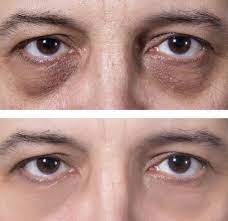Summary: Not every dental problem requires immediate attention. Severe pain, uncontrolled bleeding, or knocked-out teeth need an emergency dentist right away. Minor issues like slight sensitivity or small chips can usually wait. Knowing when to act prevents complications and saves your smile.
Dental problems rarely happen on schedule. From sudden toothaches to unexpected injuries, the first question often is: Do I need an emergency dentist, or can it wait? Understanding the difference between urgent and non-urgent situations is crucial. Acting quickly when required can prevent infections, extensive procedures, and even tooth loss. This guide will help you identify when to seek immediate attention and when a routine visit is sufficient.
When You Definitely Need an Emergency Dentist
Some dental issues cannot wait. Immediate attention can save your tooth and prevent further complications. Visit an emergency dentist if you experience:
- Severe or persistent tooth pain, especially if it disrupts sleep or daily activities.
- Knocked-out teeth, time is critical; saving the tooth is possible within an hour.
- Cracked or fractured teeth, especially if accompanied by bleeding or sharp fragments.
- Uncontrolled bleeding in the mouth could indicate gum or oral injuries.
- Swelling or infection, signs like fever or pus require urgent care to prevent spreading.
Prompt care ensures you avoid prolonged pain and costly procedures. Even minor-looking injuries can worsen if ignored.
Situations That Can Usually Wait
Not every dental discomfort demands immediate action. Some issues can be monitored and addressed during a standard dental visit. These include:
- Mild sensitivity to hot or cold foods.
- Small chips or cracks without pain.
- Loose dental work like crowns or fillings without discomfort.
- Minor gum irritation.
While these problems do not require instant attention, scheduling a timely visit prevents escalation. Ignoring seemingly minor issues can lead to severe complications later.
Why Prompt Care Matters
Ignoring urgent dental problems can lead to infections, permanent damage, or tooth loss. For instance, if a tooth infection spreads, it may require antibiotics or more invasive treatments. Even preventive procedures such as dental implants in Maple Grove, MN become more complicated if surrounding tissue is compromised.
Acting quickly reduces recovery time, treatment cost, and discomfort while preserving long-term oral health.
Tips to Handle Dental Emergencies at Home
While preparing to see an emergency dentist, some steps can help manage pain and prevent further damage:
- Control bleeding: apply gentle pressure with a clean cloth.
- Reduce swelling: use an ice pack on the affected area.
- Manage pain: over-the-counter pain relievers can provide temporary relief.
- Preserve knocked-out teeth: keep the tooth in milk or saliva, never water.
- Avoid using damaged teeth: minimize chewing on the affected side.
These measures are temporary. Professional care is the only way to fix the underlying problem.
Choosing the Right Emergency Dentist
Finding a reliable emergency dentist ensures fast and efficient care. Consider these tips:
- Check for 24/7 availability.
- Verify patient reviews and reputation.
- Confirm they handle both trauma and severe infections.
- Ensure they provide follow-up care and preventive solutions.
Residents of Maple Grove, MN, can rely on clinics offering dental implants in Maple Grove, MN services, which often provide emergency and routine treatments, making them convenient for comprehensive care.
Conclusion
Knowing when to seek an emergency dentist can save your teeth, prevent infections, and reduce long-term costs. Severe pain, trauma, bleeding, or swelling should never be ignored, while minor issues can often wait for a routine visit.
Always prioritize timely professional care, and consider local options such as dental implants in Maple Grove, MN for both emergency and planned treatments. Acting promptly ensures a healthier, pain-free smile and prevents unnecessary complications.
FAQs
Q1: Can a toothache wait until regular office hours?
A: Mild discomfort may wait, but severe or persistent pain requires immediate attention.
Q2: What should I do if my tooth gets knocked out?
A: Keep it moist in milk or saliva and visit an emergency dentist within an hour.
Q3: How do I know if swelling is serious?
A: Swelling with fever, pus, or difficulty swallowing indicates infection and needs urgent care.
Q4: Can delaying care affect dental implants?
A: Yes, delays can compromise bone and tissue health, making procedures like dental implants in Maple Grove, MN more complex.
Q5: Are dental emergencies only caused by trauma?
A: No, severe infections, abscesses, and sudden pain from untreated cavities can also require urgent care.




